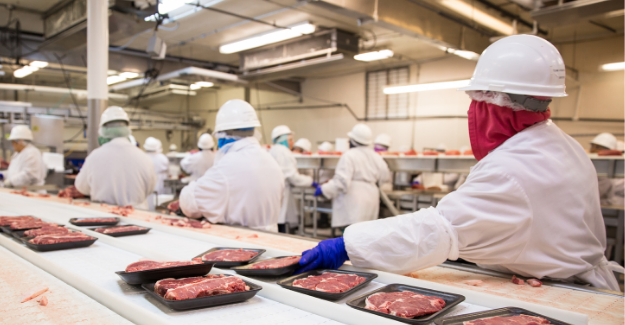
5 min read
Top Challenges for Food & Beverage Manufacturers

Food and beverage companies are among the most resilient and adaptive businesses in the world. With inherent health and safety risks, volatility of perishables, and strict compliance regulations, these companies understand how to maintain high standards and adapt to the challenges ahead.
As Millennial buying habits and e-commerce increasingly dictate market trends, food and beverage manufacturers are forced to evolve even further. We’ve outlined the top challenges facing industry professionals below — which challenge resonates the most with your business? Let us know in the comments.
Quality and Compliance
Managing regulatory compliance has always been a challenge. Today, the stakes are even higher. Companies must balance adherence to exhaustive, ever-changing policies with increasing demands for transparency from consumers.
In September 2015, the FDA modernized the Current Good Manufacturing Practices (CGMPs) and established them along with new requirements from the Food Safety and Modernization Act (FSMA). FSMA implemented some of the biggest changes to food production regulation in over 70 years. Mainly regulatory requirements shifted focus from a reactive to proactive and preventative approach.
But food safety regulations are not the only regulatory challenges that impact companies. For instance, they must also comply with workplace safety and health regulations, environmental permit requirements, product and chemical regulations, and more.
Shortage of Experienced Mentors
Not unlike other manufacturers, food and beverage companies are facing a skills shortage. With over a quarter of the domestic manufacturing workforce over the age of 55, companies are facing an onslaught of retirements and struggling to replace their experts.
Traditional training methods are failing because they rely on an abundance of mentors to help train new hires. Today, there aren’t enough mentors available to go around, and experienced workers don’t have the time to train new employees constantly.
As a result, employees perform their jobs with murky understandings of the process and don’t feel confident performing their tasks. This lack of understanding can lead to safety and quality issues.
"Experts are already busy doing their jobs, they can’t spend the time they need to properly train new hires."
Operational Technology Manager, 3M
Adapting to Consumer Preferences
With online food and beverage sales forecast to increase 32% annually, e-commerce is stealing market share from traditional retailers. This is causing manufacturers to rethink their distribution channels and packaging requirements.
In addition to the challenges of e-commerce, consumer food preferences are more complex and demanding than ever before. Trending preferences include plant-based foods, high protein snacks, low-sugar options, lactose-free, gluten-free and more.
Because consumers have developed more dynamic and diverse demands, manufacturers must now contend with more frequent changeovers and even-shorter production runs. This results in more downtime and more complex training requirements for employees that must perform a higher variety of tasks.
High Workforce Turnover
Whether it’s due to seasonal demands or a shifting workforce, many food and beverage companies are faced with high workforce turnover rates.
Studies have shown that turnover in entry-level positions costs an organization at least 16% of an employee’s annual compensation, including wages and benefits. On the recruitment side, this means that businesses have to continue large investments in recruiting and onboarding new talent.
High turnover rates also pose a challenge to training and maintaining high quality standards. When employees are still learning, they are prone to more mistakes, leading to increased downtime, safety incidents, and quality problems.
"To get the information people need, right where the work is being done is so impactful for us. Dozuki has been a game changer."
Learning & Development Change Coach, Johnsonville
Familiar Challenges, New Solutions
Opportunities for solving these challenges are endless. Fortunately, manufacturing has a wave of digital innovation at their doorstep. With new platforms specifically built to address top challenges and keep pace with global competition. Now is the time for food and beverage manufacturers to look towards digital solutions to quickly adapt to market conditions, prevent safety risks, and improve employee performance.
Topic(s):
Related Posts
View All Posts
Frontline Digital Transformation
Top Challenges Impacting the Frontline Workforce
5 min read
Even with advancements in technology and automation, the frontline workforce remains essential to modern manufacturing operations. In fact, 72% of factory work is still...
Continue ReadingPreparing Your Workforce for the Silver Tsunami
6 min read
Manufacturing businesses need a succession plan. Not for people, but for knowledge. The industry is facing a wave of retirement unlike any other. Often referred to as the...
Continue Reading
Product
FDA Compliance: Why Paper-Based Documents Won't Work for Long
6 min read
Modern documentation practices are becoming increasingly essential to achieving FDA compliance with the recent updates in the FDA’s approach to safety. While the importance...
Continue Reading



